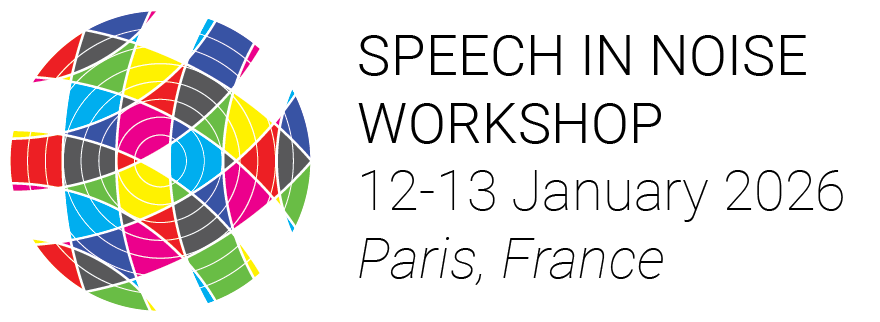This submission has been retracted and will not be presented.
P16Session 2 (Tuesday 13 January 2026, 14:00-16:30)Rethinking hearing without Fourier
Our understanding of hearing has long been shaped by the legacy of Fourier analysis, with auditory models typically relying on fixed filter banks that decompose sounds into a sum of predetermined sinusoidal components. This framework has been central to modeling a wide range of auditory phenomena—from pitch perception and speech intelligibility to musical timbre recognition. However, despite their historical importance, such models exhibit limitations: they are often at odds at accounting together the perception of tonal signals, such as speech and music, jointly with the perception of large-band noisy texture. More importantly, they struggle to account for the inherently efficient, dynamic, and adaptive nature of real-world hearing. To address these limitations, we propose moving beyond static, frequency-based representations toward a fully temporal, signal-driven approach that better reflects the adaptive characteristics of hearing. Our framework is grounded in Empirical Mode Decomposition (EMD), a signal-driven technique that decomposes signals into intrinsic modes based solely on local extrema, without assuming any predefined basis functions. We adapt this method to model peripheral auditory processing in a way that captures key aspects of hearing behavior while remaining inherently flexible and responsive to the structure of the input signal. This approach exhibits behavior that aligns with many known properties of human hearing, such as frequency masking, roughness perception, efficient coding, and cochlear selectivity, offering a unified computational account of diverse psychoacoustic phenomena. By embracing an intrinsically signal-driven strategy, our model invites a rethinking of auditory processing—from the cochlea to higher cortical areas—beyond the constraints of traditional Fourier-based paradigms.

